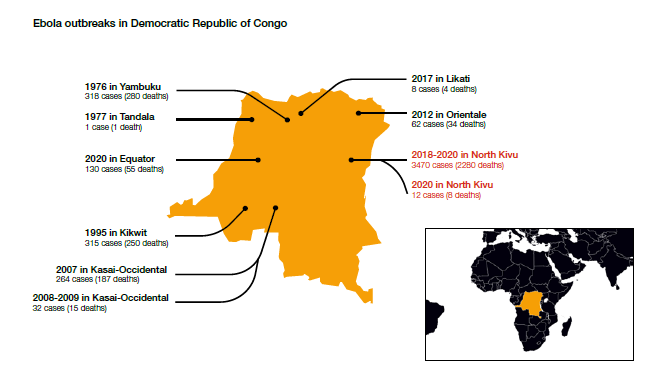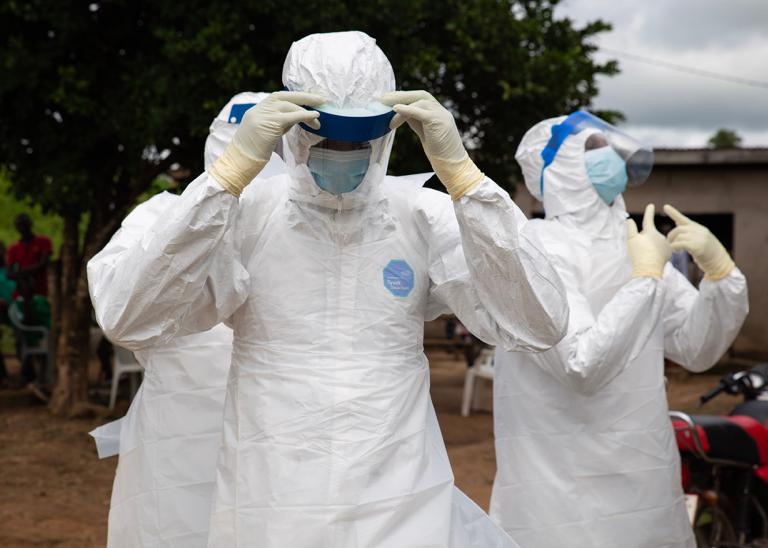Case Study — People Risk 2023
Crisis24's Strategic Consulting: Mitigating the Spread of Ebola in the DRC for a UK Governmental Organization

Situational Awareness
First identified in 1976, Ebola is a hemorrhagic fever with four known variants. It is believed to originate and exist naturally in fruit bats. Transmission occurs via direct contact with blood or other bodily fluids of infected humans or animals. On average, Ebola kills around 50% of those infected. Early access to care improves outcomes. There are two licensed Ebola vaccines that are effective against the Zaire strain of the Ebola virus. Following the experience of eradicating smallpox, a similar ring vaccination strategy is employed to vaccinate individuals at the highest risk first and then move outwards with respect to their connection with the confirmed case. Between 2013 and 2016, there was a worldwide outbreak, followed by another in August 2018, infecting 3,700 people and killing 2,280 (a mortality rate of 66%).
Crisis24 in Action
In 2019, a UK Governmental Department was looking to deploy staff to support the administration in hospitals and health clinics in the affected regions of the Democratic Republic of the Congo (DRC). They approached Crisis24 to assist in understanding the risks posed by Ebola to their staff, what measures they should put in place, and how best to manage any exposure to infected people.

Deployment Plan Outlining the Scope of Operations and Associated Risks
Crisis24’s Global Medical Director, who has significant specialist expertise in immunology and communicable diseases, held an initial meeting with the department to understand:
- The importance of community engagement with religious leaders, traditional healers, and others to support and promote infectious control measures
- The scope of their potential operations
- Offer some immediate information and guidance as to the likely risks and mitigation strategies
- Formulation of an infection control plan
- Vaccine protocol strategies, both for healthcare workers, administrative support, and the local population
This was followed by weekly calls to allow Crisis24 to work with the involved parties to develop the initial deployment plan, which included a Medical Emergency Response Plan, and submit it for approval to commence the build-up phase.
From Ongoing to Tactical Support
Crisis24’s medical team supported the client throughout the deployment, providing ongoing advice and guidance. As the processes that Crisis24 had developed bedded in, the support became more ad hoc in response to changes or developments in the situation. This outbreak also overlapped with the COVID-19 pandemic, which enabled Crisis24 to utilize its expertise to understand better the new dynamics in the face of a global pandemic and the travel restrictions that followed and adapt the protocols accordingly.
Results
From initial engagement through to the outbreak’s conclusion, Crisis24 supported the UK Government in successfully carrying out its mission. The client operated in the region and met their objectives with no Ebola infections among its personnel. On November 18, 2020, the DRC Ministry of Health and WHO announced that the outbreak was over.



